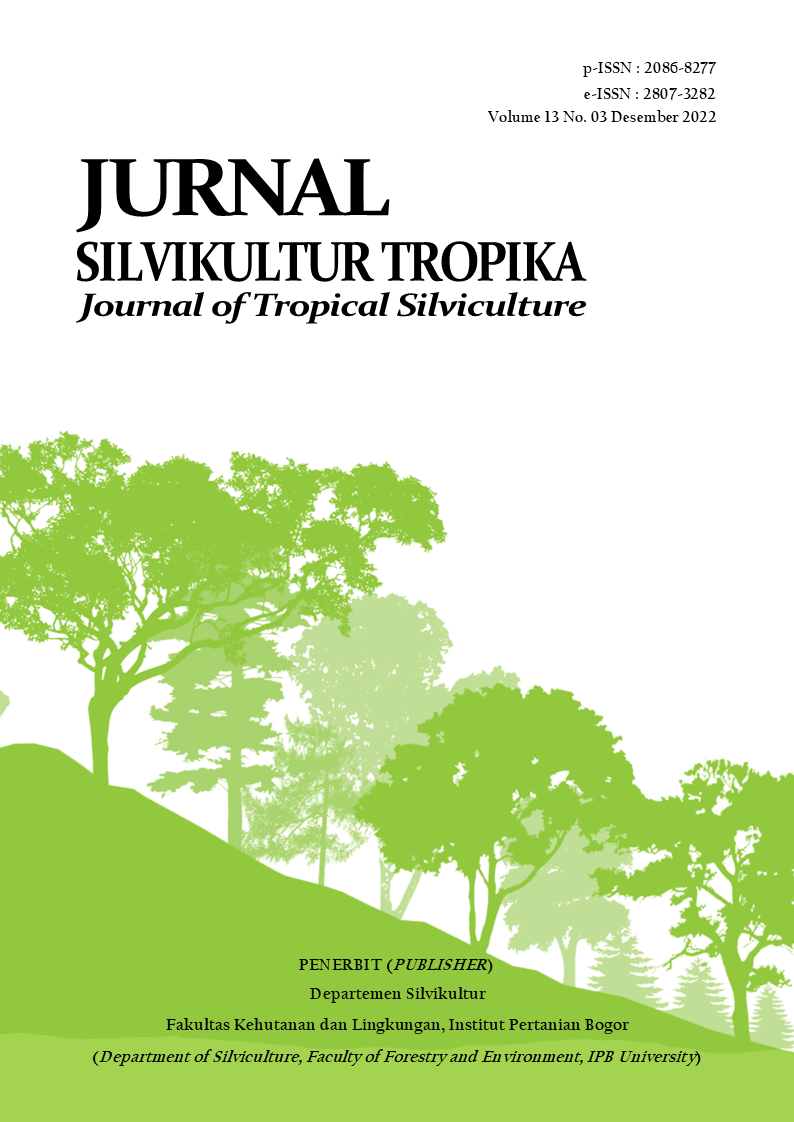Keanekaragaman Serangga Tanah di Tegakan Kenanga (Cananga odorata (Lam.) Hook. f. & Thomson) dengan Perlakuan Pemupukan
Abstract
Ylang-ylang (Cananga odorata (Lam.) Hook. f. & Thomson) or ylang- ylang from the Annonaceae family is one of the forests. This study aimed to determine the diversity and abundance of soil surface insects in Kenanga (Cananga odorata (Lam.) Hook. f. & Thomson) stands that were treated with fertilization. The research procedure includes determining the location of observations, taking samples using the pitfall trap method, measuring environmental factors, identifying insects, and analyzing data. The total number of soil fauna in the pre-fertilized treatment was found to be 14 orders and 1421 individuals, while for the post-fertilized treatment was found to be 16 orders and 2108 individuals. In each plot, there was an increase in the number of individuals who it was given fertilizer treatment except for fertilizer treatment. The factor of increasing individual insects is not only from fertilizer application but also from micro-habitat factors, namely the amount of litter, undergrowth, temperature and humidity. The morphospecies that experienced the most significant increase in the number of individuals was Formicidae. A relatively high index of ant species diversity was found in the control plot.
Keywords: Cananga odorata, biodiversity, fertilizer, insects
Downloads
Copyright (c) 2022 Noor Farikhah Haneda, Cindikia Annisa Puspadewi, Lufthi Rusniarsyah, Yeni Aryati Mulyani

This work is licensed under a Creative Commons Attribution 4.0 International License.










